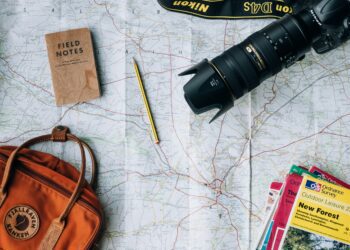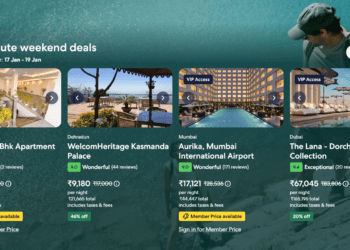When you think about it, travel is one of the most rewarding experiences you can have. It’s a chance to see new things, meet new people, and learn something new. And even if you don’t have the money to pack your bags and go on indefinite trips all the time, there are plenty of opportunities for you to travel in a more limited way. In this article, we will explore some tips for traveling the way: by foot, bicycle, train, or boat. By doing so, not only will you have an amazing experience that you can tell your friends and family about, but you’ll also be using up less energy and saving money in the process.
Planning Your Trip
Choosing the right time to travel is important, but so is planning the perfect trip. Here are a few tips for planning your first trip:
1. Research the destination. Do some online research to get an idea of what to expect. This will help you orient yourself while you’re there.
2. Map out your route. Plan out your itinerary before you go so that you know what areas to visit and when. This will also help eliminate any potential surprises or added stress when you’re on your trip.
3. Make a list of must-see attractions and avoid tourist traps. Don’t just wander aimlessly around town; plan your time wisely and stick to attractions that interest you most.
4. Pack lightly and be prepared for anything…literally! Be sure to pack enough clothes and accessories for the weather, as well as any supplies you might need like sunscreen or insect repellent . And if you’re traveling in an unfamiliar place, be aware of local customs and speak up if there’s something strange or unexpected happening!
Tips for Safe Travel
When you’re ready to take your first steps on your travel journey, there are a few things you need to keep in mind. Here are nine tips for safe travel:
1. Plan Ahead: Make a list of what you need and when you need it, and don’t leave anything to chance. If you have any concerns or questions about the destination or your traveling companion, bring them up before you leave.
2. Stay Consistent With Your Preparedness: Stick to your itinerary as much as possible, and don’t change your plans without consulting an expert. This will help avoid any unexpected incidents that could lead to problems while traveling.
3. Respect Local Customs: When visiting a new place, be sure to observe local customs and norms. Do not take things that are not yours, do not make noise late at night, and do not offer food or drink to strangers unless they ask first.
4. Let Others Know Where You Are Located at All Times: Keep in mind that people may want to reach out to you if something goes wrong while you’re away, so make sure everyone knows where you are and how to get in touch with you if necessary.
How to Pick the Right Travel Companions
The best way to travel is with a friend or travel companion. Picking the right one can be daunting, but there are some key factors to consider. Here are four tips for finding the perfect traveling partner:
1. Talk It Over
Before you leave home, be sure to have a discussion with your partner about what type of traveler you are and what your expectations are for your first trip together. This will help narrow down the search for the perfect companion.
2. Be Flexible
Your companion should be flexible too – whether that means being willing to try new things or embracing differences in culture, they should be open-minded and accommodating.
3. Respect Each other’s Differences
One of the great things about traveling with a friend is that you get to learn about each other’s backgrounds and interests in depth. However, don’t forget to keep disagreements respectful; no one wants an argument while they’re on vacation!
4. Look For Common Ground
Above all else, find someone who you can enjoy spending time with – whether it’s going out for drinks after dinner or taking scenic drives around town. If there are areas where you both have similar interests, this will make traveling together much easier!
What to Pack for your Trip
Whether you’re headed to a new city for work or pleasure, here are the essentials you’ll need:
-A passport and visa if required by your destination
-Enough money for food, transportation, and other expenses
-Passport photo
-Luggage for clothes, toiletries, and any bulky items
-Electronic devices such as laptops and phones chargers and batteries
-Local currency if traveling outside your home country
When to Leave for your Trip
When to leave for your trip depends on the time of year, your destination, and your airline.
If you’re flying into a major city, like New York City or Los Angeles, most airports operate on a “24-hour clock” which means that most flights depart around midnight. This is also the time when public transportation is the most available and affordable.
For destinations in the middle of the country or abroad, check with your airline for their specific departure times. Most airlines have multiple gate hours throughout the day and night, so you can usually leave at whatever time works best for you. Just be sure to double check with your carrier in advance to ensure that your flight leaves on schedule!
Visas and Entry Requirements
If you are traveling to a new country, you will likely need a visa. Be sure to check the entry requirements of the particular country you are visiting before departing. Some countries have more liberal entry policies than others, so it is important to do your research. Check with your travel agent or embassy about what type of visa you will need and how to get one.
Some other things to consider before traveling include getting vaccinations for the country you are visiting and packing an emergency kit in case of illness or injury.
Costs of Traveling Abroad
Looking to explore a new place but don’t know where to start? Check out our infographic below for some tips on how to travel cheaply and effectively. For most people, traveling abroad can be expensive. However, there are ways to save money while still enjoying a luxurious vacation.
Start Planning Early
The best way to save on your trip is by planning ahead. Make a budget and figure out what you can afford – then stick to that budget. Shop around for the best deals – airlines, hotels, cars – and compare prices before making a decision. Keep in mind that some places are more expensive than others; consider visiting locations in countries with lower cost of living, such as Thailand or Mexico.
Be Flexible With Your Plans
Don’t worry if your plans change – you’re allowed to make adjustments! For example, if you find an affordable hotel in Rome that’s closer to the attractions you want to see, switch your destination from Venice to Rome without penalty. Just be sure you tell your airline about your new destination so they can adjust your reservation accordingly.
Plan Your Trip Around Festivals and Holidays
Many destinations have famous festivals or holidays that coincide with important cultural events. Consider visiting these during off-peak times when rates are usually lower. For example, during Christmas season many European cities experience heavy tourism traffic which raises prices for hotels and other tourist services. But during January and February when the weather is milder, many tourists stay home which lowers






















